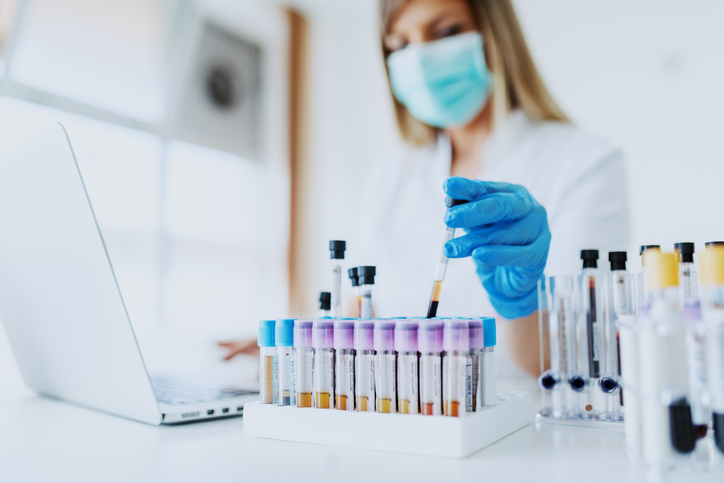The head of Cancer Trials Ireland spoke recently with Irish Pharmacist about the importance of clinical pharmacists in ensuring patient safety in trials
An agreement was signed recently that will mean more effective cancer care and research on the island of Ireland, despite Brexit and Covid-19. The Ireland-Northern Ireland-US National Cancer Institute (NCI) Cancer Consortium agreement was first signed in 1999, following former US President Bill Clinton’s visit to the Republic and Northern Ireland the previous year and was at that time named the All-Island Cancer Consortium. It was recently re-signed by Minister for Health Stephen Donnelly and his Northern counterpart Robin Swann and Director of the National Cancer Institute in the US, Dr Norman Sharpless.
The objective of the agreement is to establish a robust consortium, with the aim of reducing cancer incidence and mortality on this island through cross-border and transatlantic collaborations in cancer research and education. At the re-signing, the signatories received messages of support from Taoiseach Micheál Martin, NI First Minister Arlene Foster and Deputy First Minister Michelle O’Neill. The current MOU was four years in the making.
Since its inception in 1999, the Consortium has helped to establish a robust clinical cancer trials infrastructure on both sides of the border, an All-Island Cancer Atlas, and has trained more than 500 clinicians, healthcare professionals and scientists through a number of short-stay programmes at the NCI. An analysis of the Consortium’s work, published in 2020 in the European Journal of Cancer, showed that it had been instrumental in doubling the number of collaborative cancer research projects across Ireland and helped to significantly increase the amount of quality research published in high-impact clinical journals.
Since its establishment following the Good Friday Agreement, the Consortium has enabled the recruitment of more than 35,000 people on clinical cancer trials on both sides of the border. CEO of Cancer Trials Ireland Ms Eibhlín Mulroe spoke with Irish Pharmacist (IP) about the implications of the agreement and the importance of utilising the skills of clinical pharmacists to ensure patient safety in the complex trials process.
Ms Mulroe commented: “If you are running a clinical trial with a drug, that just can’t be done without a clinical pharmacist, so they are crucial. We have had trials paused simply because we did not have a pharmacist on-site to mix the drug and prepare the drug for the trial,” she said. “When you are preparing a drug for a trial, you can’t just use an off-the-shelf product. It needs to be labelled appropriately as an investigational product, even if it is standard of care. There is a whole process around that and pharmacists are really key to that.
“Many of the pharmacists in our hospitals will say that our funding through the HRB and the Irish Cancer Society has enabled them to work on clinical trials. But when you have worked in other countries — we do okay [in Ireland], but we could do better — you see that the health services fund people to work in clinical trials, whereas here, we rely on our health research funder, and that’s not good enough. We do have to look at the HSE and NCCP to see how they might structure jobs within the health service so that there are people who work exclusively on research and trials. That’s a big conversation — we are getting somewhere with it, and it’s great that the HSE has finally appointed someone who is in charge of research, but we could probably do better.”
Ms Mulroe also spoke about the importance of clinical pharmacists on trials in the context of potential drug-drug interactions. “In terms of adverse events in trials, we have a whole pharmacovigilance department and some of the people working there are pharmacists,” she told IP. “Every adverse event has to be reported within 24 hours; we have a medical oversight team that reviews all of them, but it’s massively important to have a good pharmacist to ensure safety in your trial.”
Ms Mulroe went on to speak about the serious consequences of Covid-19 on cancer care in Ireland in terms of missed diagnoses and treatment. “Dr Sharpless has predicted a 10-year mortality increase as a result of Covid in the US, and it’s going to be the same here,” she told IP. “People are coming to the clinics later, their cancer has progressed further than it should have, people were not being screened, so there will be an obvious knock-on effect. We are bracing ourselves for that — we have written to the Minister for Health and asked for a meeting on this.
“The Irish Cancer Society has co-signed the letter. We want to reframe the cancer strategy because to be honest, it is sitting on a shelf. It was published in 2017 and very little has happened to the strategy since then. Particularly from a research perspective, it lacks an implementation piece and we want to look at that with a Covid lens, because we are going to have to change focus and we will have to be ready with clinical trials too. There are going to have to be some hard conversations had with people with cancer and we want to be able to say to them, ‘we have a trial that might be able to help you’.”







